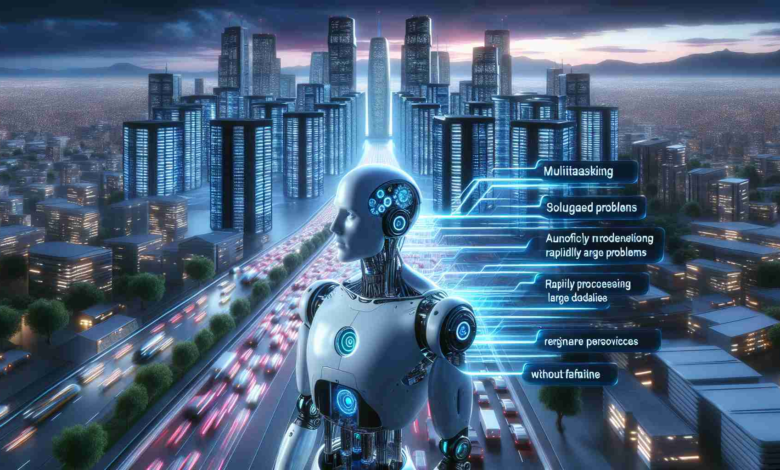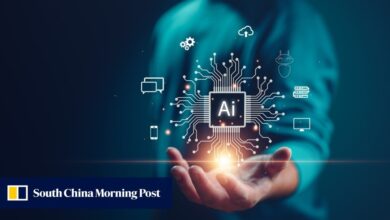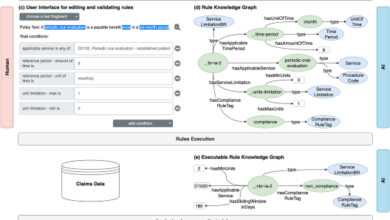Exploring the Rise of Artificial Intelligence and Its Advantages over Human Capabilities

The Evolution of AI in Various Industries
Artificial Intelligence (AI) is reshaping numerous industries, including banking, communications, and entertainment. As AI innovations continue to surge, more companies are adopting this technology to gain a competitive edge. Despite challenges faced in Latin America, the region is increasingly leveraged AI, as detailed by the MIT Technology Review.
AI’s Impressive Capacities
According to Jovani Jiménez, an AI research group director and professor at the Universidad Nacional, AI’s capacities exceed human abilities in several ways due to biological, cognitive, and temporal factors. AI can process vast amounts of data, sometimes taking mere seconds to identify patterns in millions of images—tasks that would take humans several years of non-stop effort.
AI’s Limitless Memory and Error Learning
Jiménez points out that AI benefits from inexhaustible memory and a superior ability to learn from errors, not to mention predictive and simulation capabilities in complex scenarios like healthcare. These qualities allow for significant improvements in personalized medical services, as observed in AI’s application in diagnostic imaging by Australian university researchers.
The Unmatched Data Management of AI
Rafael González, a faculty member at Universidad Javeriana’s engineering department, highlighted AI’s ability to outperform humans in both complex games and data management. He emphasized AI’s distributed and scalable learning, using the example of autonomous vehicles: when one learns from a mistake, an update ensures no other vehicle will repeat the same error—a form of collective learning not available to humans.
AI’s Customized Problem-Solving Skills
Carlos Alberto Parra, also from Universidad Javeriana, elaborated on AI’s ability to adapt and solve specific problems, processing both quantitative and qualitative information in ways that humans find challenging.
Understanding AI’s True Role
Dispelling common misconceptions, Óscar Martínez from Universidad Javeriana clarified that AI does not perform tasks beyond human capability. It operates faster due to algorithms—driven by human-provided information. AI cannot self-develop, maintaining human superiority over the technology.
Advantages of AI Over Human Capabilities
The advantages of AI over human capabilities include:
1. Speed of Processing: AI can analyze and process data at speeds unattainable by humans. This rapid processing power is beneficial in areas where real-time decisions based on large datasets are crucial, such as financial trading.
2. Handling Big Data: AI systems excel at managing and extracting insights from vast amounts of data, termed “Big Data,” which can be overwhelming for human analysts.
3. Availability: Unlike humans, AI systems can operate continuously without the need for breaks, sleep, or vacation. This can lead to significant productivity gains in various sectors.
4. Consistency: AI algorithms can perform the same task in the same way every time without being influenced by emotions or fatigue, leading to more consistent outputs.
5. Minimizing Human Error: Automating routine and complex tasks can reduce the likelihood of errors that are often associated with human intervention.
Key Challenges and Controversies
Some of the key challenges associated with AI include:
1. Job Displacement: The automation of tasks previously carried out by humans could lead to job displacement in certain sectors, raising concerns about employment and social implications.
2. Ethical and Moral Issues: The use of AI raises ethical questions, particularly in scenarios where it makes autonomous decisions that can affect human lives, such as in healthcare or military applications.
3. Privacy Concerns: AI systems that process personal data can lead to privacy issues, as there may be risks of data misuse or breaches.
4. Accountability: Determining responsibility for actions taken by AI systems can be complex, posing legal and regulatory challenges.
5. AI Bias: If AI is trained on biased data, it can perpetuate and amplify these biases, leading to unfair or discriminatory outcomes.
Disadvantages of AI
1. Lack of Creativity: While AI can analyze and interpret data, it does not possess the human trait of creativity and the ability to think outside the box.
2. Emotional Intelligence: AI lacks emotional intelligence and the nuanced understanding of human emotions, which can be essential in certain fields suchanagan as healthcare or customer service.
3. Cost of Implementation: Developing and implementing AI solutions can be expensive, potentially limiting access to well-funded organizations and contributing to wider inequality.
4. Dependence: Over-reliance on AI can lead to degradation of human skills, as tasks are increasingly offloaded to intelligent systems.
5. Misalignment of Goals: If an AI’s goals are not perfectly aligned with human values, it may act in ways that are detrimental or unexpected.
For further exploration and understanding of the topic, you can find information on advancements, ethical implications, and societal impacts of AI on websites such as those of leading technology research institutions. Here are some authoritative sources:
– MIT Technology Review: Explores the latest in technological advances and their implications, including artificial intelligence.
– Association for Computational Linguistics: Offers resources and research on AI in the context of understanding and generating human language.
– Association for the Advancement of Artificial Intelligence: A professional organization dedicated to promoting research in, and responsible use of, artificial intelligence.
– Institute of Electrical and Electronics Engineers (IEEE): Provides numerous publications and conferences on technology-related topics, including AI and its industry applications.



